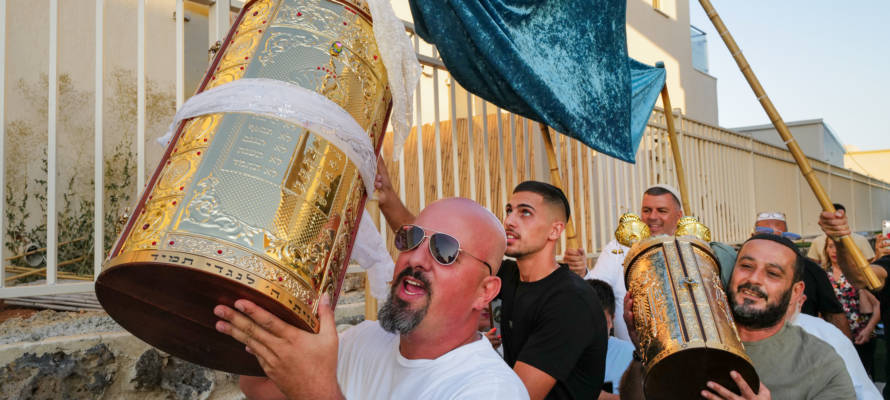Just as the purity of the body is essential in Judaism, so too is the unity of the Jewish people as a whole. We are one body, one family, and one soul.
By Rabbi Ari Enkin, Rabbinic Director, United with Israel
This week’s Torah portion is “Re’eh” (Deuteronomy 11:26-16:17) and in it we read about the ban on self-mutilation, especially as a sign of mourning. As the Torah says: “You are children to your God — you shall not mutilate yourselves … for a dead person … for you are a holy people to your God.”
This transgression is known as “lo titgodedu” and in addition to a ban on mutilating the body there is another interesting application of this ban as we will see below.
In the olden days many people, as a religious or cultural practice, would mutilate themselves by making cuts in their skin as part of their mourning rituals. We are completely forbidden to do so. Judaism is very big on mournin…but in the proper manner.
We have all kinds of rules for mourning. We have rules for mourning closer relatives and rules for mourning more distant relatives. We mourn people, and we mourn Temples. There are other occasions of mourning in the Jewish calendar as well, each with its own rules.
Grief and expressions of grief are permitted if not outright encouraged. But excessive mourning is actually forbidden.
Even when in mourning and steeped in sadness we have to remember that God has a reason for all He does.
The pain of mourning should be somewhat lightened by the realization that a loving father, God, would not be cruel to a child, us. The knowledge that God is a loving Father should make one’s acceptance of a personal loss more tolerable. The Torah tells us, “You should know in your heart that just as a father will chastise his son, so your God chastises you.” (Deut. 8:5) It’s never fun to be chastised but the faith that God runs the world should provide some measure of consolation even though we may not understand His ways.
Notice how the reason given against self-mutilation in mourning is, “For you are a holy people to your God.” Contrary to widespread misconception, the body is holy, not just the soul. The body is given to us to protect, and mutilation, tattoos, and the like, are completely forbidden from the perspective of Jewish law.
As mentioned above, there is another application of the ban on mutilation, and that is the ban on “mutilating” the unity of the Jewish people.
Although many Jewish communities have different customs, one should not deviate from the custom of the community one finds oneself in. For example, one who wears tefillin on the intermediate days of a festival and finds himself in a synagogue where this is not done, probably should not put on tefillin in that synagogue. Rather, one can put on the tefillin before or after the service in the privacy of one’s home.
There are scores of other examples. The message here is that just like the unity and purity of the body is essential, the Jewish people, by extension, are one body, one family, and one soul. As such, we have to be careful not to “mutilate” ourselves in a way that onlookers might be led to believe that the Jewish people are separate nations.
For more insights by Rabbi Enkin on this week’s Torah portion, click on the links below.
https://unitedwithisrael.org/living-torah-making-god-happy-and-making-other-people-happy/
https://unitedwithisrael.org/living-torah-for-happy-and-health-children-protect-their-environment/
https://unitedwithisrael.org/living-torah-the-holiness-of-gods-names/
